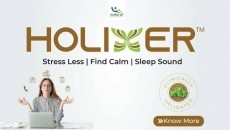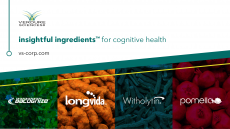Do consumers understand the actual brain health benefits of food and supplements?

Writing in the journal Nutrients, an international team of researchers explored the misalignment between what consumers think is beneficial for cognition and how the scientific community substantiates those benefits. This disconnect inhibits evidence-based health recommendations, they wrote.
“For the first time, we documented how consumers comprehend the potential benefits of nutrition on brain health,” the study noted. “The present findings illustrate how consumer science can be leveraged to better understand the relevance of cognitive assessment tools to everyday life, support the scientific substantiation of consumer benefits, and enhance understanding of what can be delivered by foods, diets and nutrients in terms of cognitive health.”
Difficulties with messaging
Consuming supplements, foods and beverages can affect how the brain functions, which may additionally improve cognition and mood. This impact motivates consumers in their dietary choices, which has implications for public health. The researchers cite that public health messages that align with consumer interest are more likely to be heeded.
“Poor cognitive and mental health carries a significant burden on individuals, families, healthcare systems and society as a whole,” they wrote. “Therefore, it is essential that consumers can comprehend and assess the functional properties of foods and supplements, and their role in optimizing or maintaining brain and cognitive health.”
According to Grand View Research, the market for brain health supplements was valued at $8.63 billion in 2022 and is expected to grow at a compound annual rate of 13.3% by 2030. The researchers noted that nearly 25% of U.S. adults take at least one supplement to promote brain health.
Despite this consumption, there is still a disconnect between how consumers express and interpret the benefits of these supplements and what research reports.
“It is also unclear whether scientific evidence for these expected outcomes exists, or even whether these outcomes can be verified by nutrition scientists,” the researchers explained. “This knowledge gap presents a challenge to the scientific substantiation of cognitive health benefits and makes it difficult to communicate evidence-based recommendations to the public.”
The study sought to determine how consumers understand the effects of nutrition on brain health and what terms they used to describe the benefits. The investigation also aimed to find areas of alignment and misalignment between consumer language and how research depicts cognitive performance.
Study details
Study participants were recruited through social media advertisements and the Oracle Data Cloud, generating a cohort of 46 people between the ages of 19 and 59.
The volunteers took part in a focus group on the Zoom platform to gain insight into how consumers depict brain health. They discussed the effects of food or nutrition on the brain and the type of brain functions they wanted to improve. This part of the research was designed and carried out by the independent research group National Opinion Research Center (NORC) at the University of Chicago.
Next, the study used a thematic analysis of the focus group transcripts to determine key themes and subthemes from the conversation. Participants talked about a variety of topics, including optimizing cognition, improving memory and attention, increasing processing speed and sharpness, reducing anxiety, harnessing energy, remaining present and more.
The researchers created a Consumer Taxonomy of Cognitive and Affective Health in Nutrition Research to assess their findings.
Many consumer concepts were well validated through cognitive tests, the researchers explained. Good alignment included concepts like ‘episodic memory,’ ‘focused attention,' ‘sustained attention,' ‘subjective energy’ and ‘anxiety.'
Gaps exist, though, in the understanding of nutritional effects in areas such as prospective memory—the ability to remember to carry out a planned action at a future time. Misalignment also occurred with memory surrounding presence (or remaining in the moment) and flow, a mental state where a person is completely focused on a single task or activity.
The study noted several limitations including the small sample size and that the focus groups did not probe deeply into the everyday cognitive benefits of diet and supplements.
Still, the present findings outline ways consumer science can be used to support a better understanding of cognitive health and how foods, diets and nutrients can support it, the researchers explained.
They concluded that “future research aimed at developing tests and tools that better reflect consumer expectations, combined with targeted communication strategies to increase consumer knowledge and understanding, will be key to closing the gap between scientific research and consumer expectations.”
Source: Nutrients
doi: 10.3390/nu16121950
“Alignment of Consumers’ Expected Brain Benefits from Food and Supplements with Measurable Cognitive Performance Tests”
Authors: Hayley A. Young et al.














